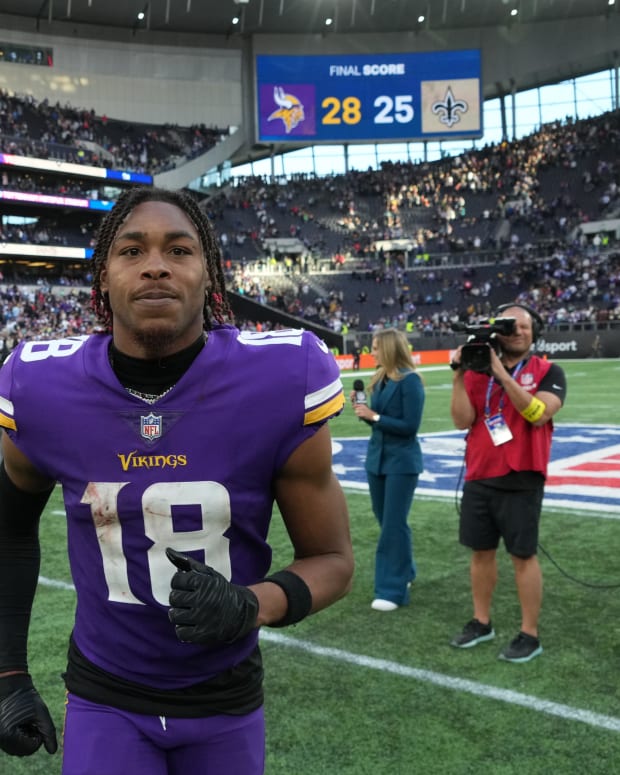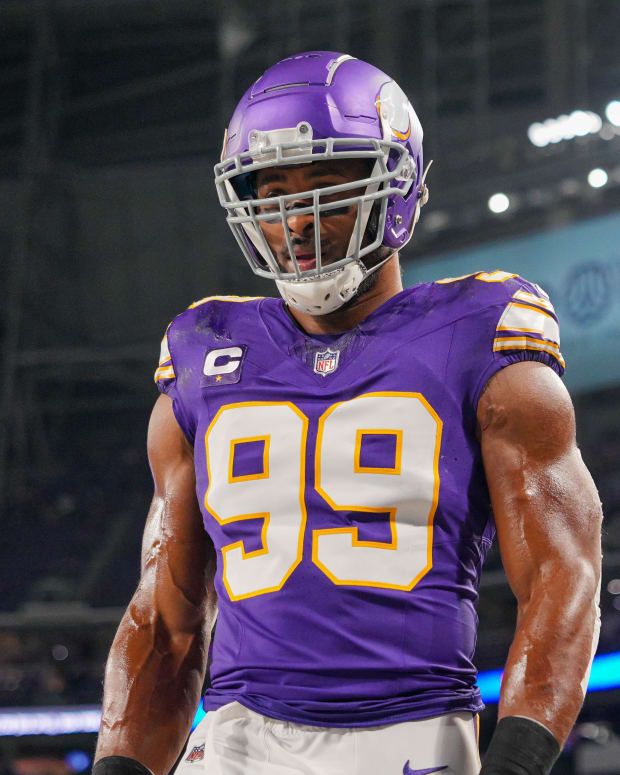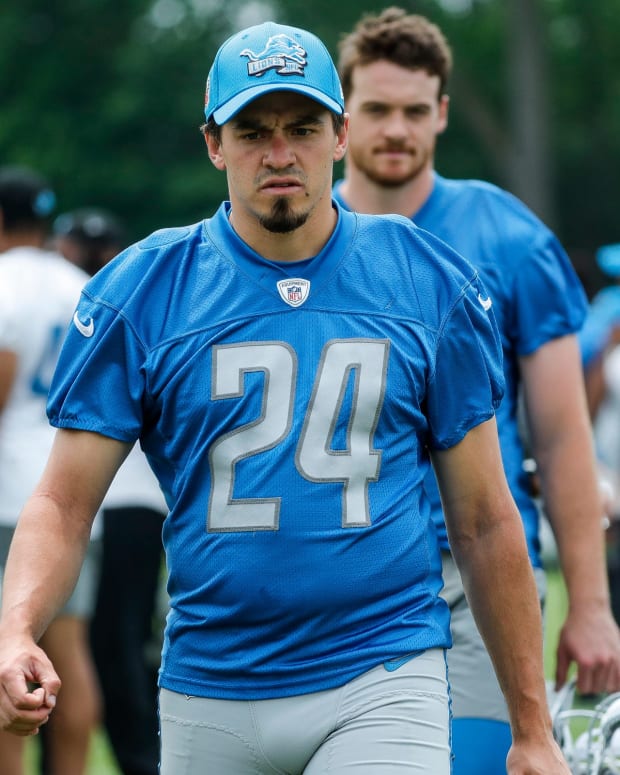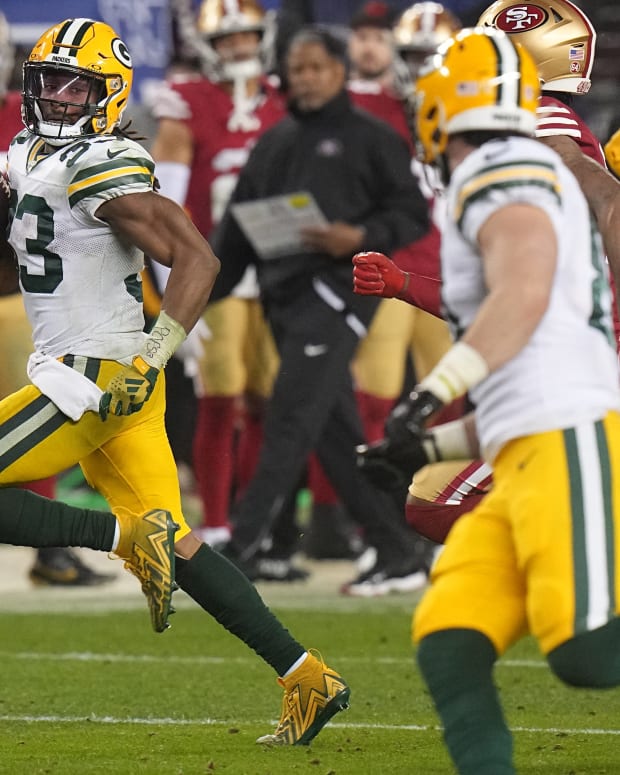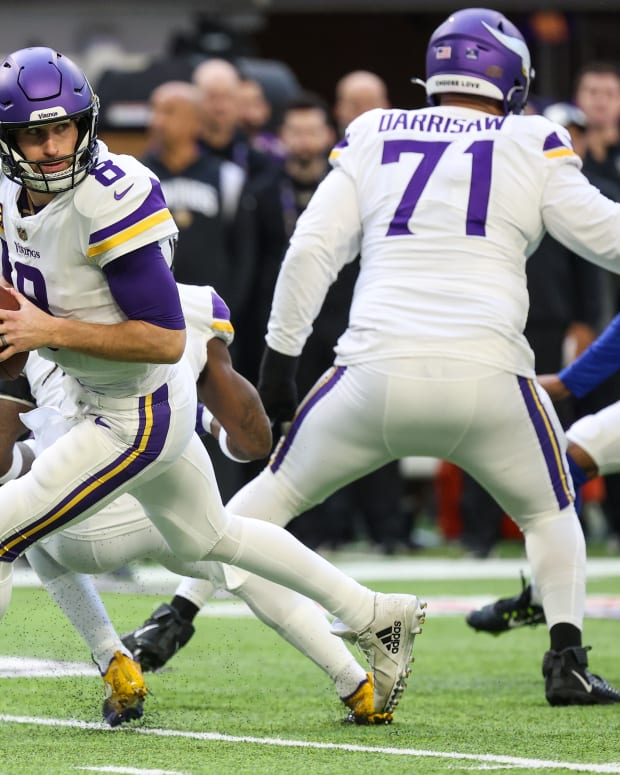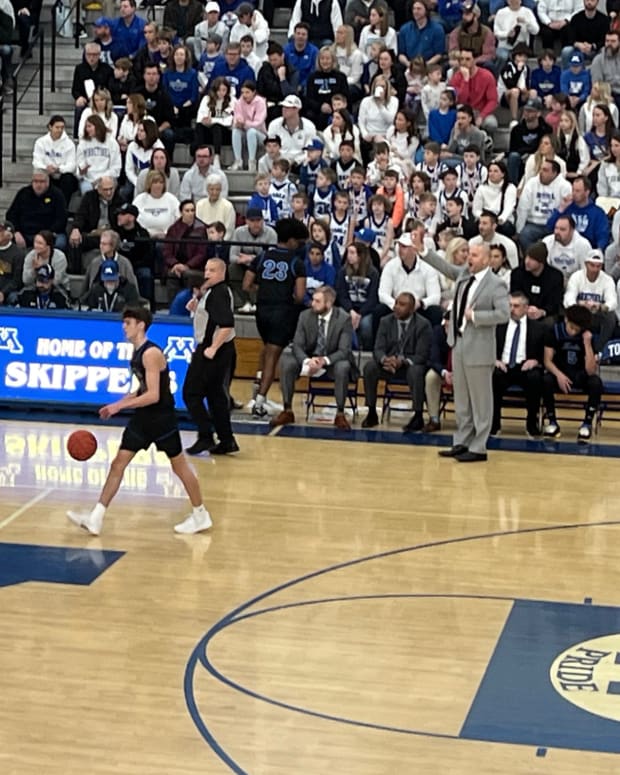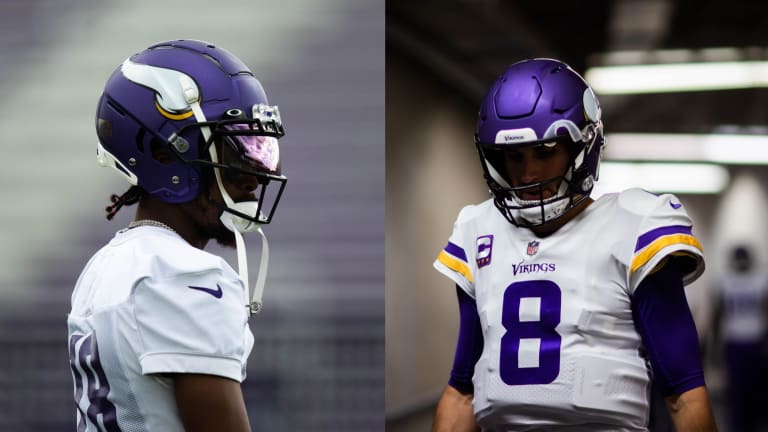
Sports Illustrated prediction ties Justin Jefferson contract to Kirk Cousins departure

Justin Jefferson is undoubtedly going to become the highest-paid wide receiver in NFL history, possibly before the 2023 season begins, but does marrying Jefferson for the long haul require the Vikings to divorce quarterback Kirk Cousins?
That's what Sports Illustrated's Conor Orr essentially wrote in his article about 100 bold NFL predictions for the 2023 season. One of his predictions says reports of Jefferson's contract extension framework will emerge, and that "Jefferson will replace Kirk Cousins’s $35 million salary in the budget once the team gets rid of him."
That prediction leads to another where Orr says the Vikings "will make a relatively low-cost and high-upside maneuver to secure their quarterback for 2024 ahead of the market."
The key there are the words "ahead of the market." That means Minnesota would have to make a trade for a quarterback before free agency begins in mid-March 2024. In reality, that means Minnesota would probably need to make a trade during the season and before the trade deadline, which typically falls on the Tuesday after Week 8. Trades after the deadline cannot be formalized until the start of the new league year in mid-March.
"Trey Lance? Zach Wilson? Mac Jones? The Vikings are not going to catch as many good-luck heaters as they did in winning 13 games a year ago," writes Orr. "They will be middling and will also have to confront life after a very good quarterback who commands a fully guaranteed salary each season."
That's all fine and dandy, but is a Jefferson extension only possible if the Vikings cut ties with Cousins? Cousins has one year left on his contract before he'll be an unrestricted free agent in 2024.
Orr is suggesting that no matter what happens with the Vikings in 2023, Cousins is a goner if they want to ink Jefferson to a long-term deal. But what happens if Cousins and Jefferson are an unstoppable duo? Is the Vikings' cap situation too strained to pay both? Would Cousins need to take a team-friendly deal to stay?
There are a lot of balls in play in this talking point and none of them are as set in stone as Orr makes it seem.

